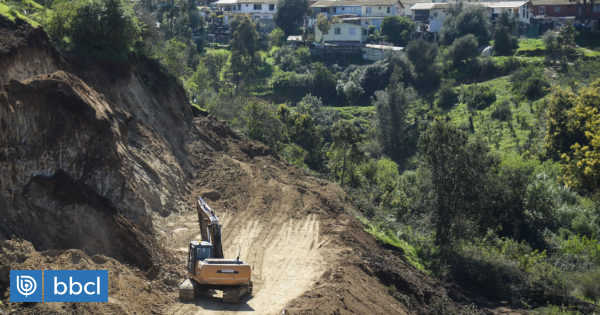
[ad_1]
This Tuesday the Supreme Court unanimously confirmed the ruling handed down by the Santiago Court of Appeals, in November 2020, which rejected an appeal for protection presented by the National Society of Agriculture (SNA) against the Comptroller General of the Republic ( CGR).
This is due to opinion Nº6271 of the supervisory body that declared illegal the management plans for cutting native forest for the authorization of lands for agricultural purposes approved by CONAF. (see opinion)
In this way, the judgment of the Third Constitutional Chamber of the country’s highest court confirms the validity of what was settled by the Comptroller’s Office in March 2020, causing a double defeat for farmers in judicial matters.
The dispute over the opinion began to take shape at the end of 2019, when the deputy of the Regionalist Green Social Front (FRVS), Alejandra Sepúlveda, and the Association of Forest Engineers for the Native Forest (AIFBN), requested a statement from the Comptroller’s Office regarding the legality of management plans for agricultural purposes authorized by the National Forestry Corporation (CONAF).
In response to his request, the entity led by Jorge Bermúdez ruled that “It is incompatible to authorize a native forest logging management plan for the recovery of land for agricultural purposes, inasmuch as said permit would not comply with the purpose of protecting, recovering and improving the native forest (…) for which CONAF must adopt the corresponding measures to comply with what is concluded in this pronouncement ”.
So it was. On April 3, 2020, in Resolution No. 203, CONAF instructed the term of entry of applications for management plans for logging native forest for recovery for agricultural purposes, an issue that triggered the legal action of farmers, promoted by the president of the SNA, Ricardo Ariztía de Castro, against the Comptroller’s Office and CONAF. (see resolution)
During the processing of the case in court, different environmental organizations became part of the allegations as third parties. One of them was Fundación Terram. Christian Paredes, a lawyer for the institution, was happy with the ratification of the Supreme Court ruling, who “ratified” the legality of the Comptroller’s opinion.
“With this confirmatory ruling, what the highest court ultimately does is ratify the legality of the Comptroller’s interpretation in relation to the questionable institutional position that CONAF had been presenting regarding the validity of agricultural management plans,” he says .
Next, he adds: “It should be noted that between 2008, when the Native Forest Law came into force, and March 2020, CONAF approved cutting down more than 22 thousand hectares in this way, deviating of course from the objectives protection that Chilean forest legislation has, an issue that we make present in a report recently published in Ciper ”.
Fernanda Miranda, geographer of the foundation, highlighted the ruling in the context of climate and ecological change that the country – and the planet – is currently experiencing. “It is time that the agricultural sector began to have limitations, since it has enjoyed a historical deregulation in environmental matters,” he said.
The foregoing, the expert argues, because “agricultural plantations are not evaluated in the Environmental Impact Assessment System (SEIA), nor are agricultural projects that involve a change in land use evaluated environmentally.”
Read here the resolution of the Court of Appeals ratified by the Supreme Court:
[ad_2]